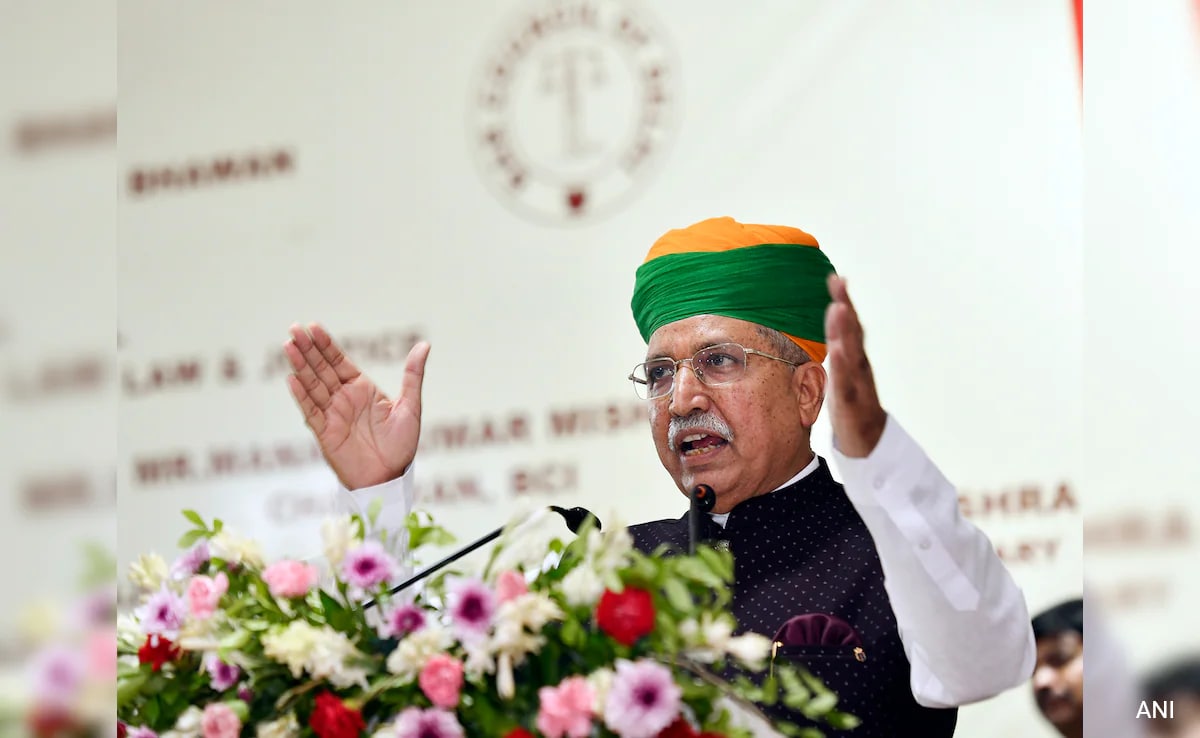

Law Minister asserted that “no guidelines were issued to states for implementing the uniform civil code”.
New Delhi:
The government on Friday rejected suggestions that it has issued guidelines to states to implement a uniform civil code.
In a written response to a question in the Lok Sabha about “guidelines issued by the government for implementing the Uniform Civil Code in different states”, Law Minister Arjun Ram Meghwal asserted that “no such guidelines were issued by the Government of India to state governments for implementing the uniform civil code”.
Responding to a sub-question, the minister said B R Ambedkar, the architect of the Constitution, while moving the relevant provision in the Constituent Assembly, had said there is a uniform code of laws in the country, covering almost every aspect of human relationship.
“The only province the civil laws have not been able to invade so far is marriage and succession and therefore, draft Article 35 (now Article 44) is provided as a part of the Constitution,” Meghwal said, quoting Ambedkar.
In short, a uniform civil code means a common law for all citizens of the country that is not based on religion. Personal laws and laws related to inheritance, adoption and succession are likely to be covered by the common code.
In his Independence-Day address this year, Prime Minister Narendra Modi had noted that the Supreme Court has given various directions regarding a common code.
The spirit of the Constitution also encourages such a uniform code, he had said, referring to Article 44 under the Directive Principles of State Policy.
The article says it is the duty of the State to secure a uniform civil code for the citizens throughout the territory of India. “It is our responsibility to fulfil the dream of the makers of our Constitution. I believe that there should be a serious discussion on the subject,” PM Modi had said.
Uttarakhand came out with its own uniform civil code recently.
The Centre has referred the matter to the Law Commission, which began fresh public consultations on it last year.
Before that, the 21st Law Commission, which was in operation till August 2018, had examined the issue and solicited the views of all stakeholders on two occasions. Subsequently, a consultation paper on “Reforms of Family Law” was issued in 2018.
In its consultation paper issued on August 31, 2018, the 21st Law Commission, headed by Justice (retired) B S Chauhan, had said the diversity of India’s culture can and should be celebrated, and specific groups or weaker sections of the society must not be “dis-privileged” in the process.
The commission had said it had dealt with laws that were discriminatory rather than providing a uniform civil code, “which is neither necessary nor desirable at this stage”.
The consultation paper said most countries are now moving towards recognition of difference, and the mere existence of difference does not imply discrimination but is indicative of a robust democracy.
A uniform civil code in India has been a key agenda of successive election manifestos of the ruling Bharatiya Janata Party (BJP).
(Except for the headline, this story has not been edited by NDTV staff and is published from a syndicated feed.)








